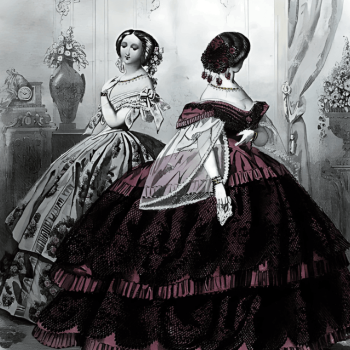Editors' Note: This article is part of the Patheos Public Square on the Future of Faith in America: Islam. Read other perspectives here.
Who are we? Where did we come from? Why did we come here? Where are we going? How do we live and move in the world, individually and collectively? How do we find fulfillment? Exploring these questions and finding some answers is one of the main purposes of religion.
Muhammad in his cave asked the same questions, like Moses before the burning bush or Jesus in his desert. God answered Muhammad with the Quran. But the Quran didn't just answer his questions and close them. It answered them and yet left them open for further exploration, like windows and pathways that lead us out of our small rooms into green pastures and wide open skies.
In the Quran, God invites all of us—Muslims and non-Muslims—to think, to ponder, to reflect, to interpret, to remember. He invites us to make, to give, to work, to help, to do good without needing an approved list of good things to do.
It's almost as if God is showing us that his creation is not a finished product, but an always unfinished organism: learning, moving, growing toward a goal we can't see yet. It's almost as if God is inviting us to participate in growing his creation by growing with it. The universe is expanding and our personal expansion contributes to it.
There are universal principles, of course, like the oneness of God and the oneness of humankind, that can't be changed. But how many different ways can individuals and groups explore and embody those principles? Every single one of us illustrates that question with our lives. This is an artistic practice, whether we call it that or not. And it takes the sensibility of an artist to do it well. But not all spaces are suited to it. In fact, some spaces are outright hostile.
America is an artistic space where the question of what it means to be religious can be explored with the least interference. It offers a political environment where the right to practice religion, to speak freely, to publish, and to gather are protected by the law. In a space of creative freedom like this, artists of faith can work freely and a religion can grow branches and leaves and fruit.
Many of us immigrants came to America with a conformist model of practicing Islam. We thought, let's take advantage of the political freedoms and the economic opportunities in this country, but let's also build an island to protect the faith from being influenced and altered. After all, we further thought, the only way to maintain our unique identities is to carve our traditions, rituals, and mindsets into stone. But stones don't bear fruit and they leave our Muslim communities hungry.
So now we have some choices to make. The first is that we can stay the course and let the religion we hold dear become a stone sculpture from the past, getting further and further out of touch with Allah's growing universe. The second is that we can withdraw from religious life altogether and become what the Pew Research Center calls the "religiously unaffiliated." The third is that we can rethink what Islam has been and reimagine what it could be.
That means we have to start thinking of ourselves as artists of Allah. If imagination is the faculty through which we study scripture, explore creation, and pray to the Creator, then using the lens of art and beauty to practice Islam is far more vital than using the lens of law and tradition.
An artistic model of religion indicates that universal principles have countless applications. Our first task as artists of faith is to draw those abstract principles down into the tangible world in nourishing, relevant, and inspired ways. Our second task is to reconnect our daily experiences in the tangible world back to the intangible world so that they become reflections of higher principles.
This circular movement from the principle to the expression and then back to the principle mirrors the creative motion of the universe. Anything that wants to live and stay vital must match this movement. Those who are active in writing, illustration, painting, music, dance, and other forms of creativity will recognize the need for this movement in their own practice.
So we have an opportunity here in the artistic space that is America to make Islam a living creative religion that learns and grows as we learn and grow. The conformist model of Islam can't begin to serve the hopes and dreams of more than 1.6 billion Muslims. But an artistic model can begin to unfold our God-given creativity and give us far more options to address the challenges of today and tomorrow.
As we struggle to become a collection of civilizations and not a planet of warring nations, perhaps the way of the artist is needed right now far more than the way of the legal scholar or the theologian or even the mystic. And American Muslims are in a unique position to do the work of reimagining and revitalizing the faith so that all Muslims around the world can benefit.
8/12/2015 4:00:00 AM




